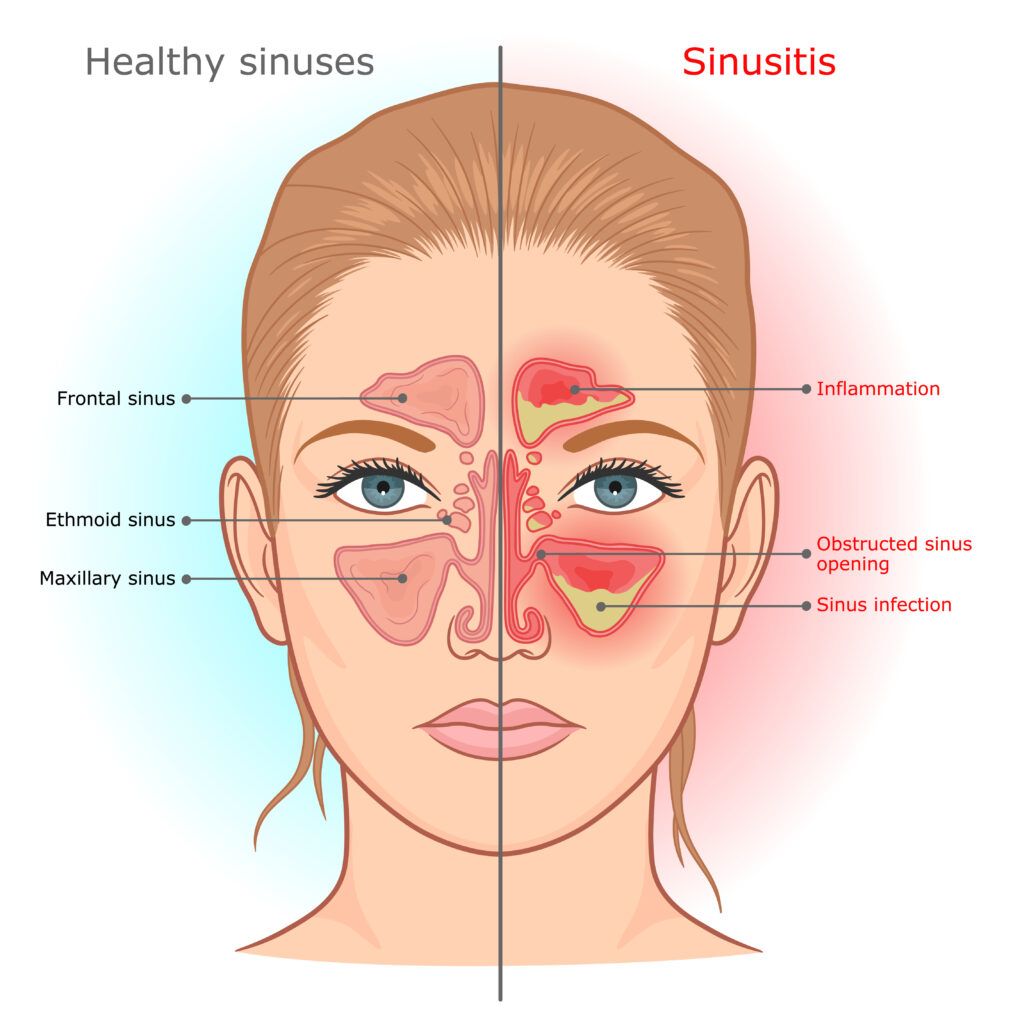What Causes It?
Nasal polyps - These tissue growths can block the nasal passages or sinuses.
Deviated nasal septum - A crooked septum (the wall between the nostrils) may restrict or block sinus passages, making the symptoms of sinusitis worse.
Respiratory tract infections - Infections in your respiratory tract, most commonly colds, can inflame and thicken your sinus membranes and block mucus drainage.
Allergic reactions - Allergies such as hay fever can trigger inflammation of the sinuses and nasal mucous membranes.
Immune system issues - Conditions that affect your immune system, such as HIV/AIDS or cystic fibrosis, may increase your susceptibility to sinusitis.
Fungal infections - Allergic reactions to fungi can cause persistent sinusitis.
Complications from medical conditions - Conditions such as gastroesophageal reflux disease (GERD) can create inflammation in the nasal passages and sinuses.
Environmental factors - Air pollution, cigarette smoke, and other irritants can cause chronic inflammation of the nasal passages and sinuses.
Signs & Symptoms
Nasal inflammation - Swollen, inflamed nasal passages that cause difficulty breathing through your nose.
Thick, discolored discharge from the nose - Yellow or greenish discharge from the nose or down the back of the throat (postnasal drip).
Facial pain or pressure - Pain, tenderness, and swelling around your eyes, cheeks, nose, or forehead.
Reduced sense of smell and taste - Difficulty perceiving odors and flavors due to nasal blockage.
Chronic cough - Often worse at night due to postnasal drip.
Sore throat - From postnasal drip irritating the throat.
Bad breath - Caused by infected mucus in the sinuses and throat.
Fatigue - Persistent inflammation can lead to general tiredness and reduced energy levels.
Ear pain or pressure - From blocked eustachian tubes connecting the sinuses to the ears.
Headaches - Often described as a deep, dull ache around the eyes, forehead, or across the cheeks.
